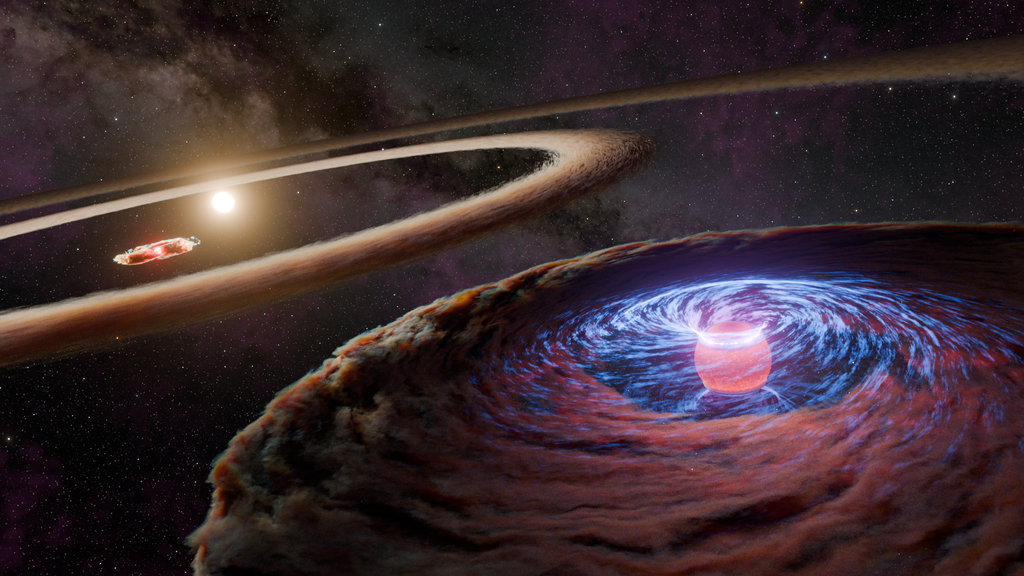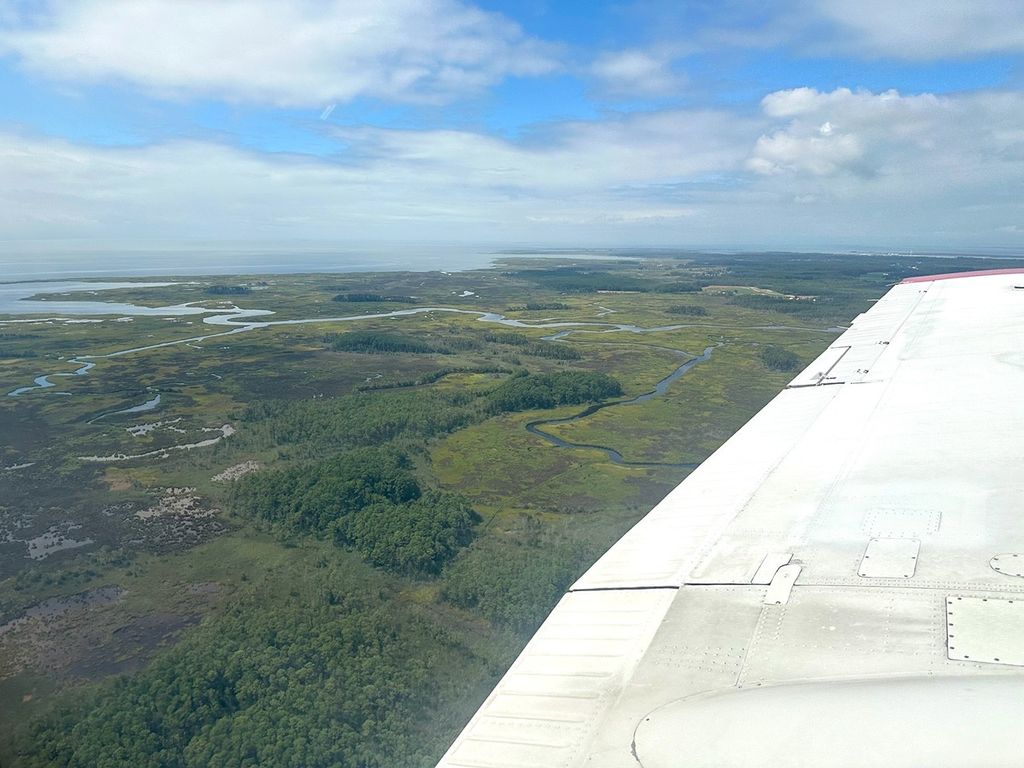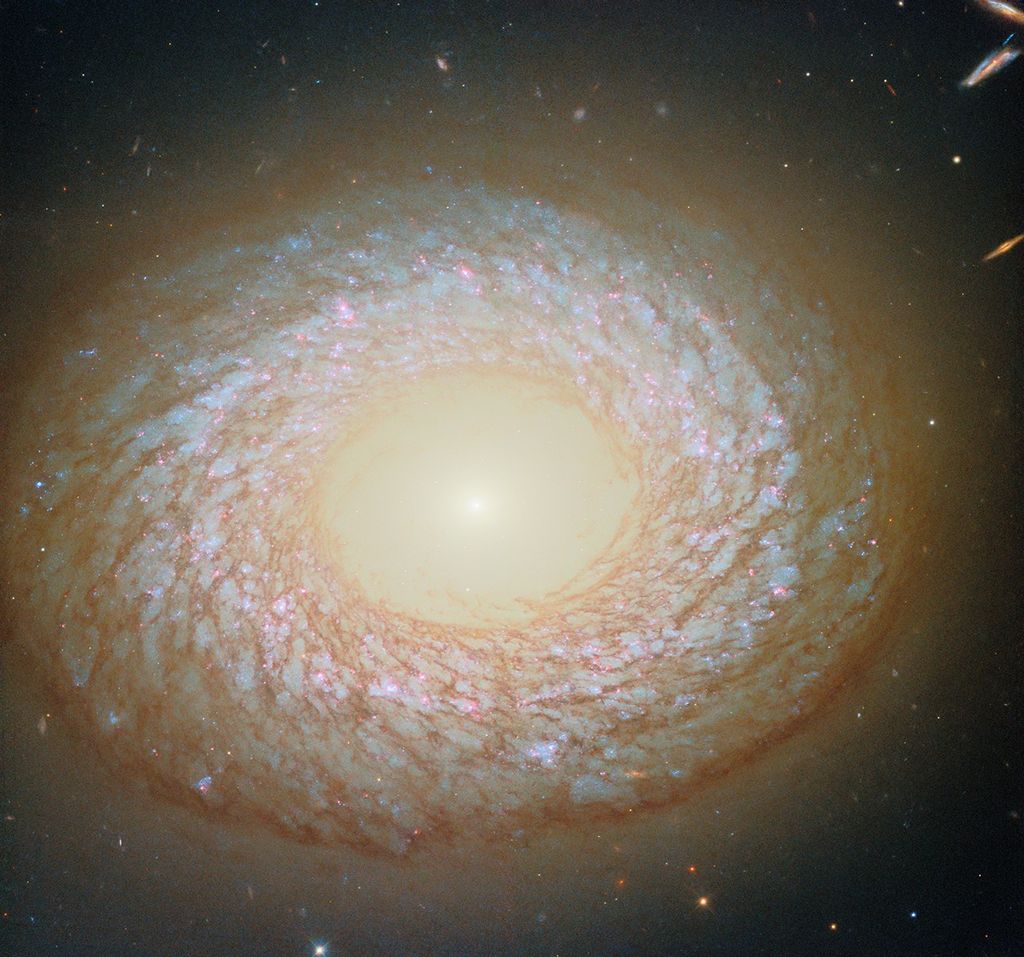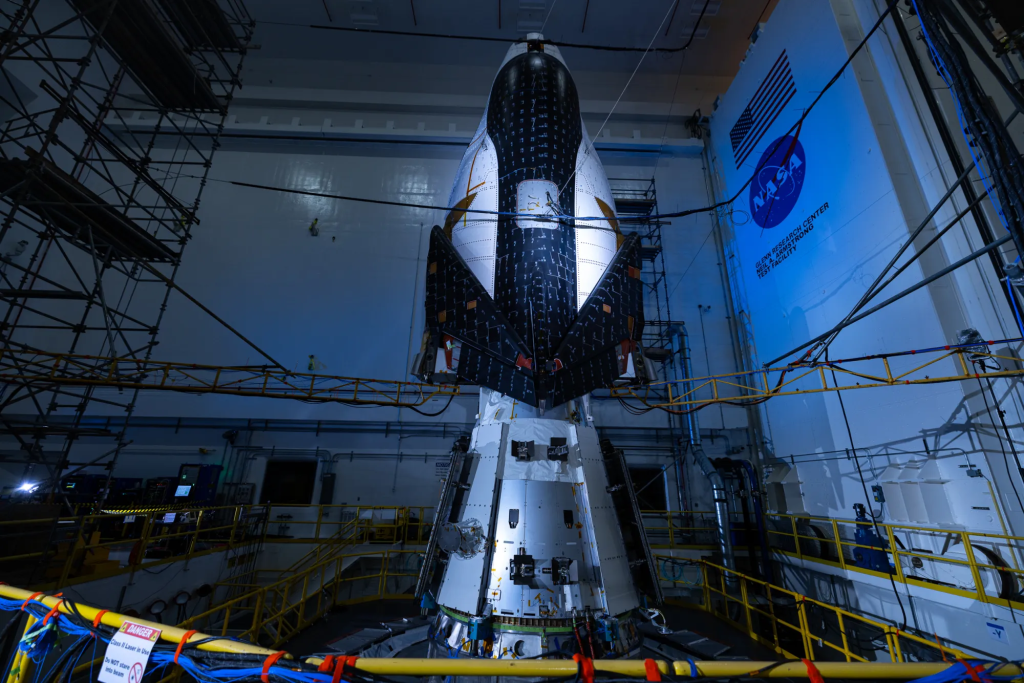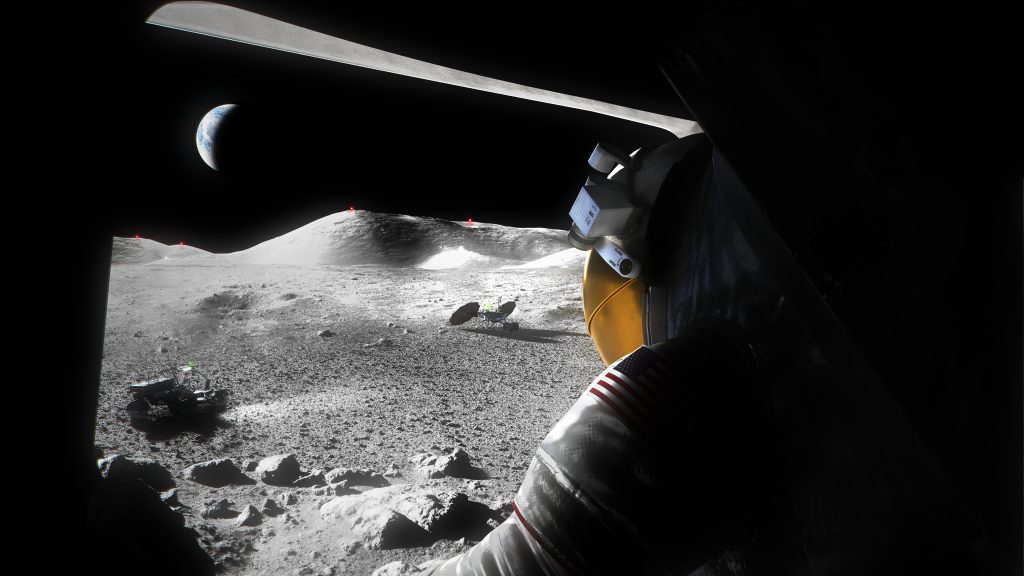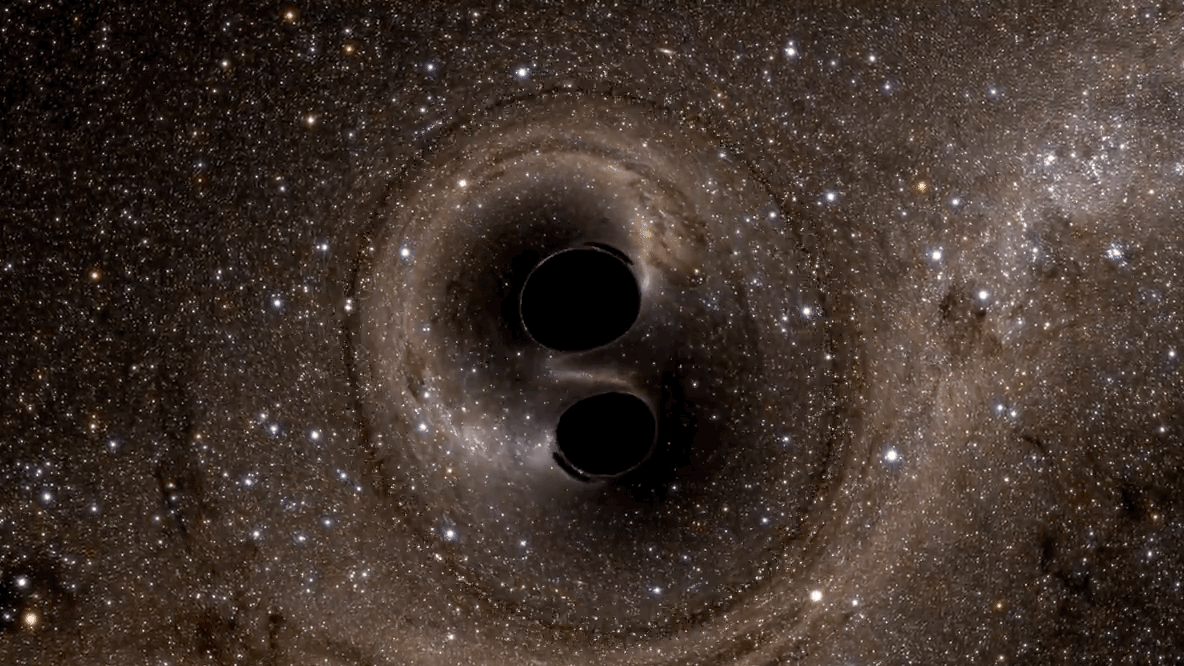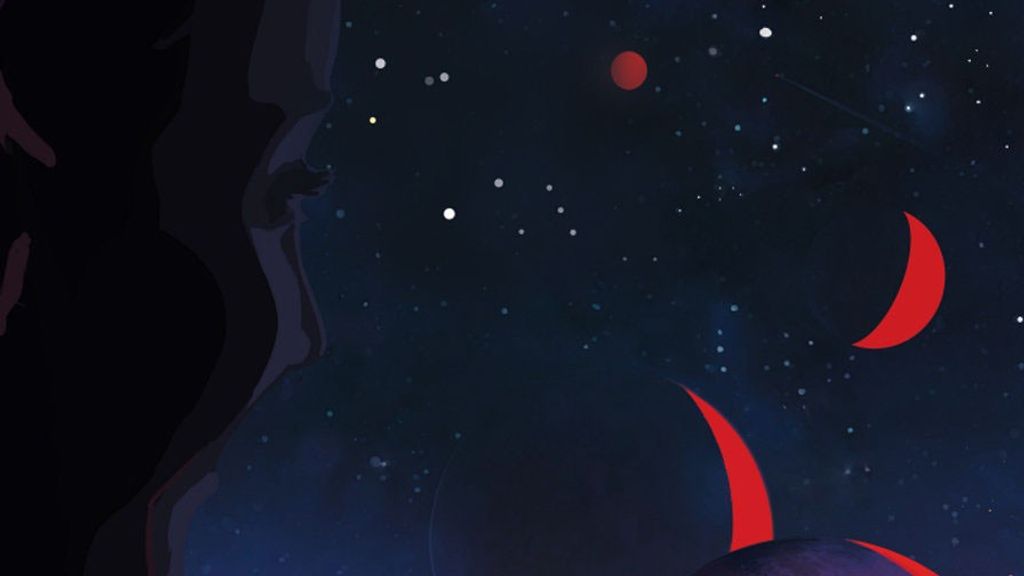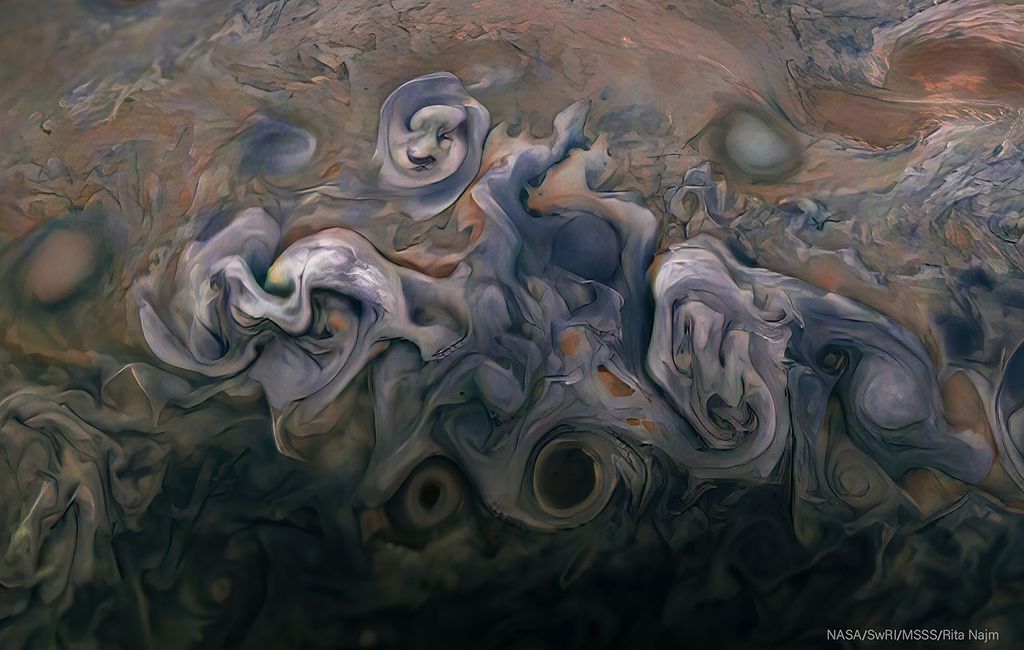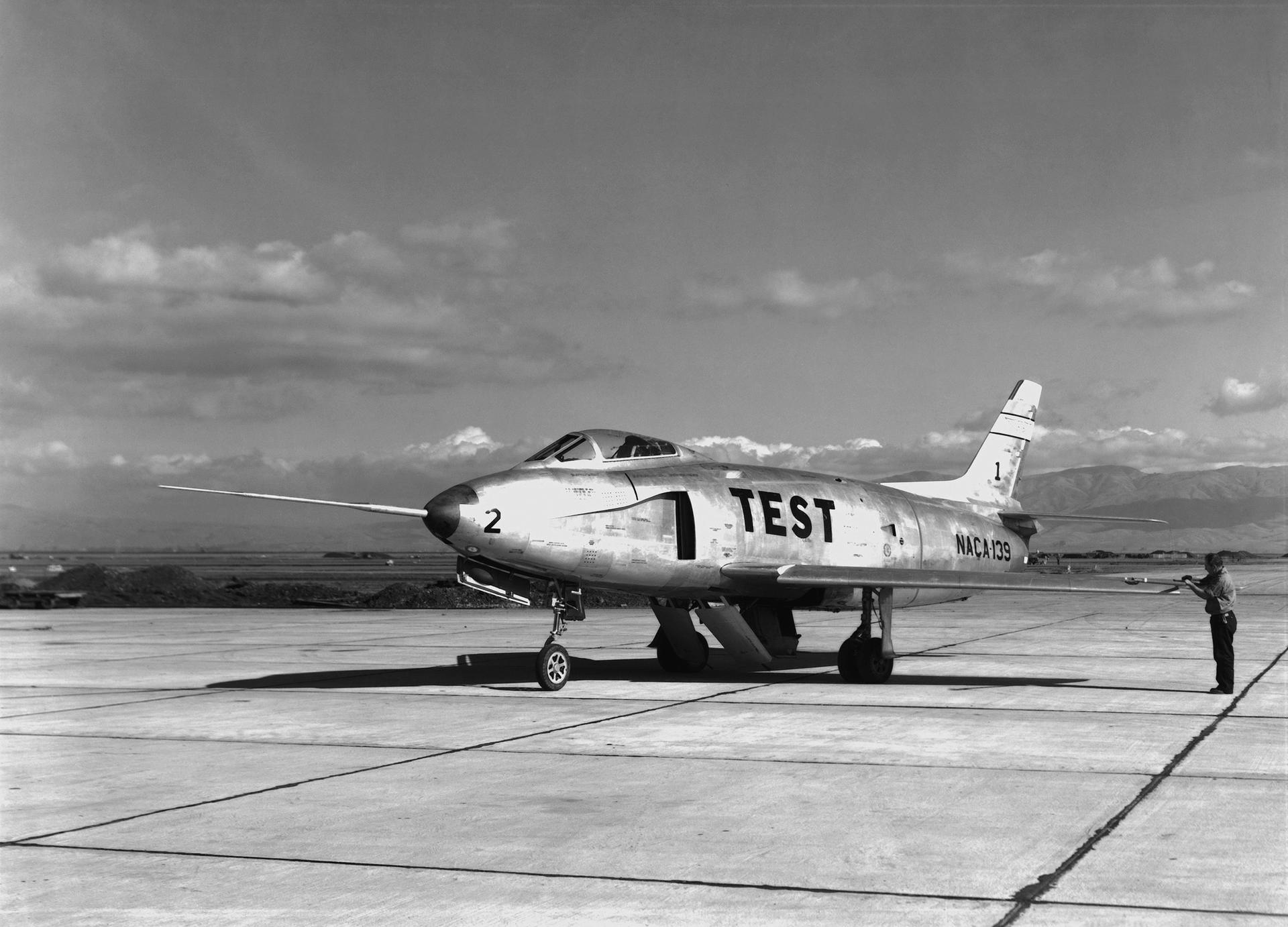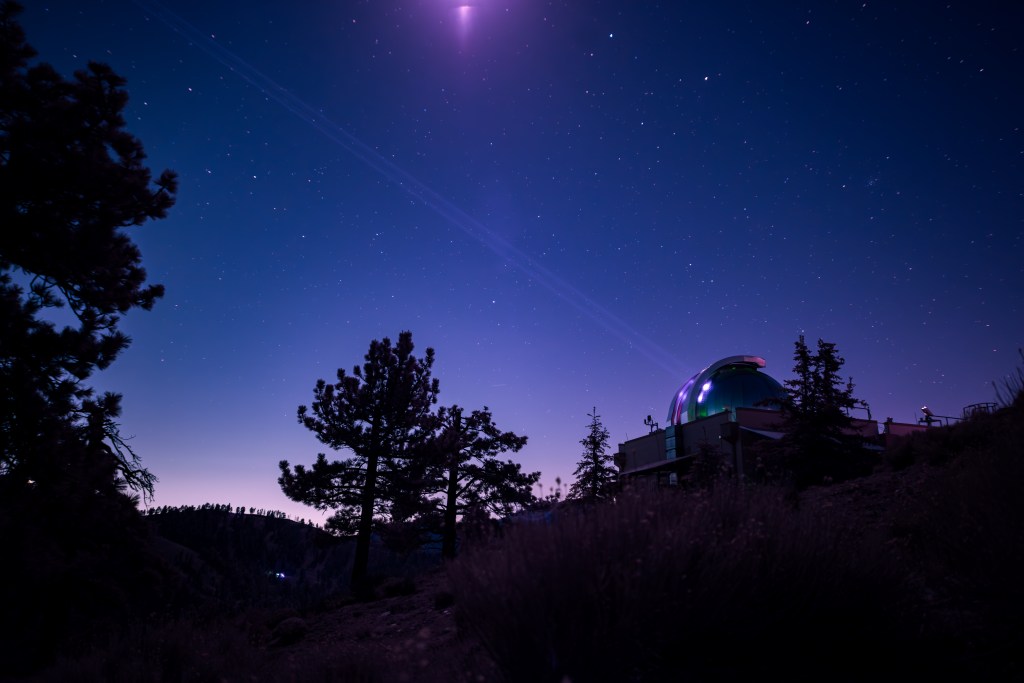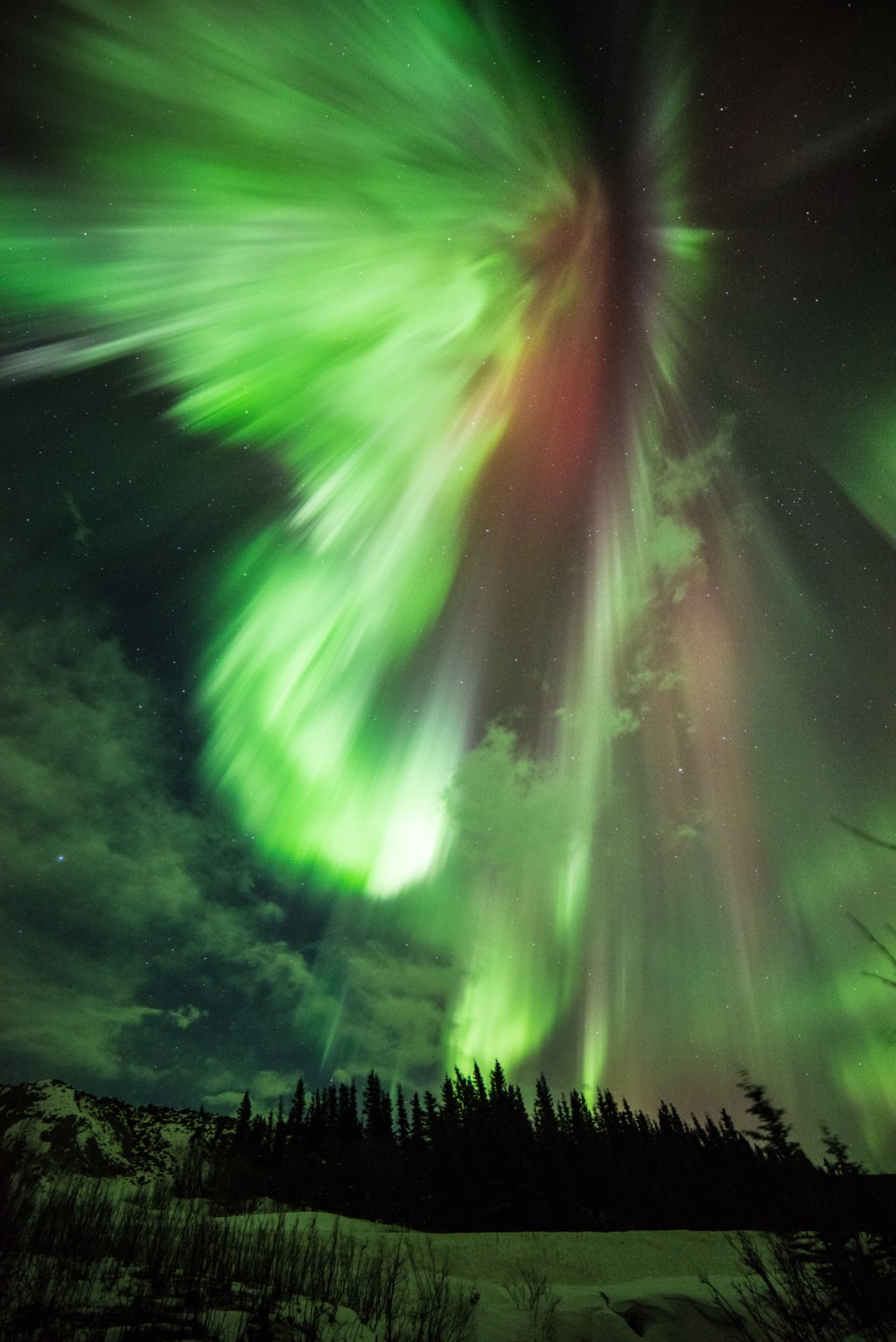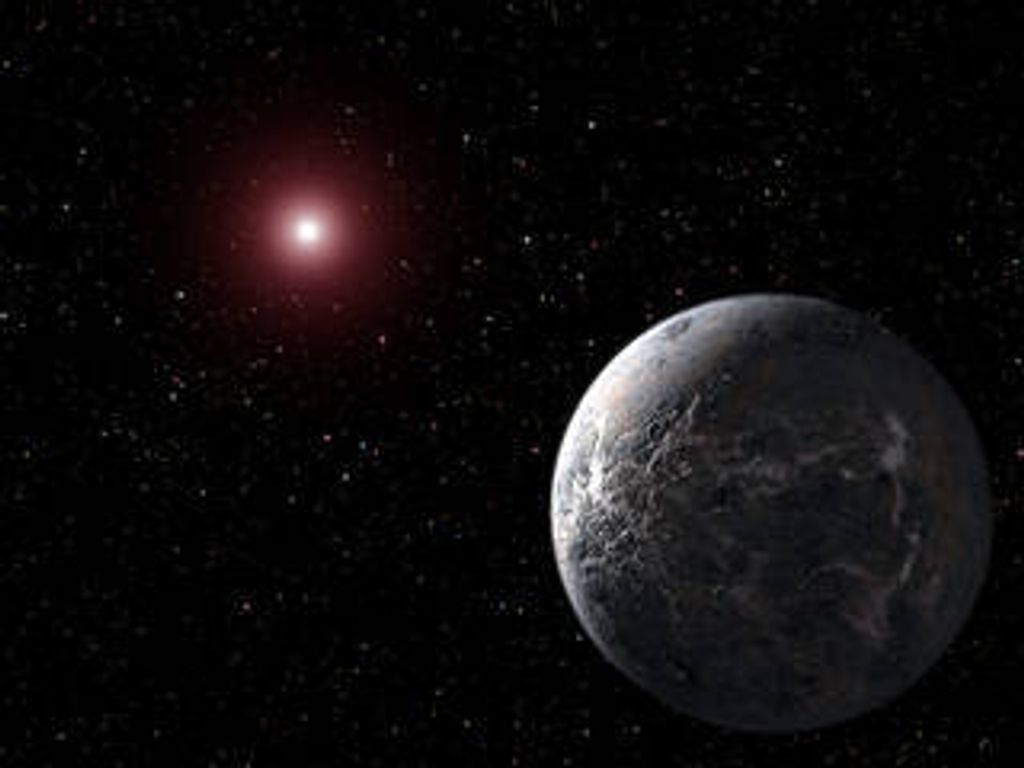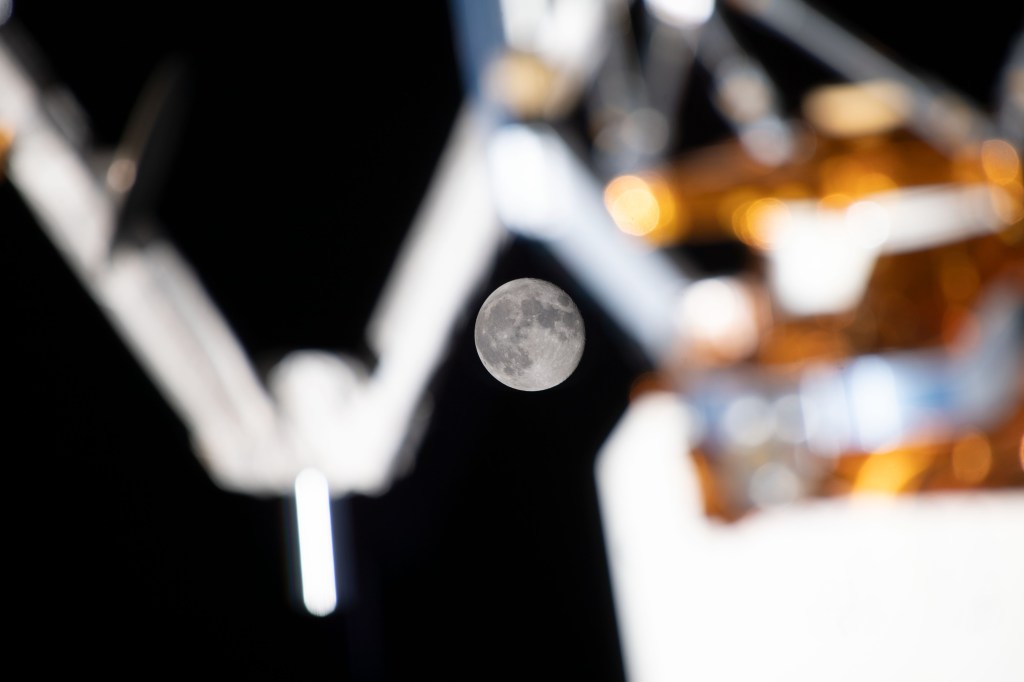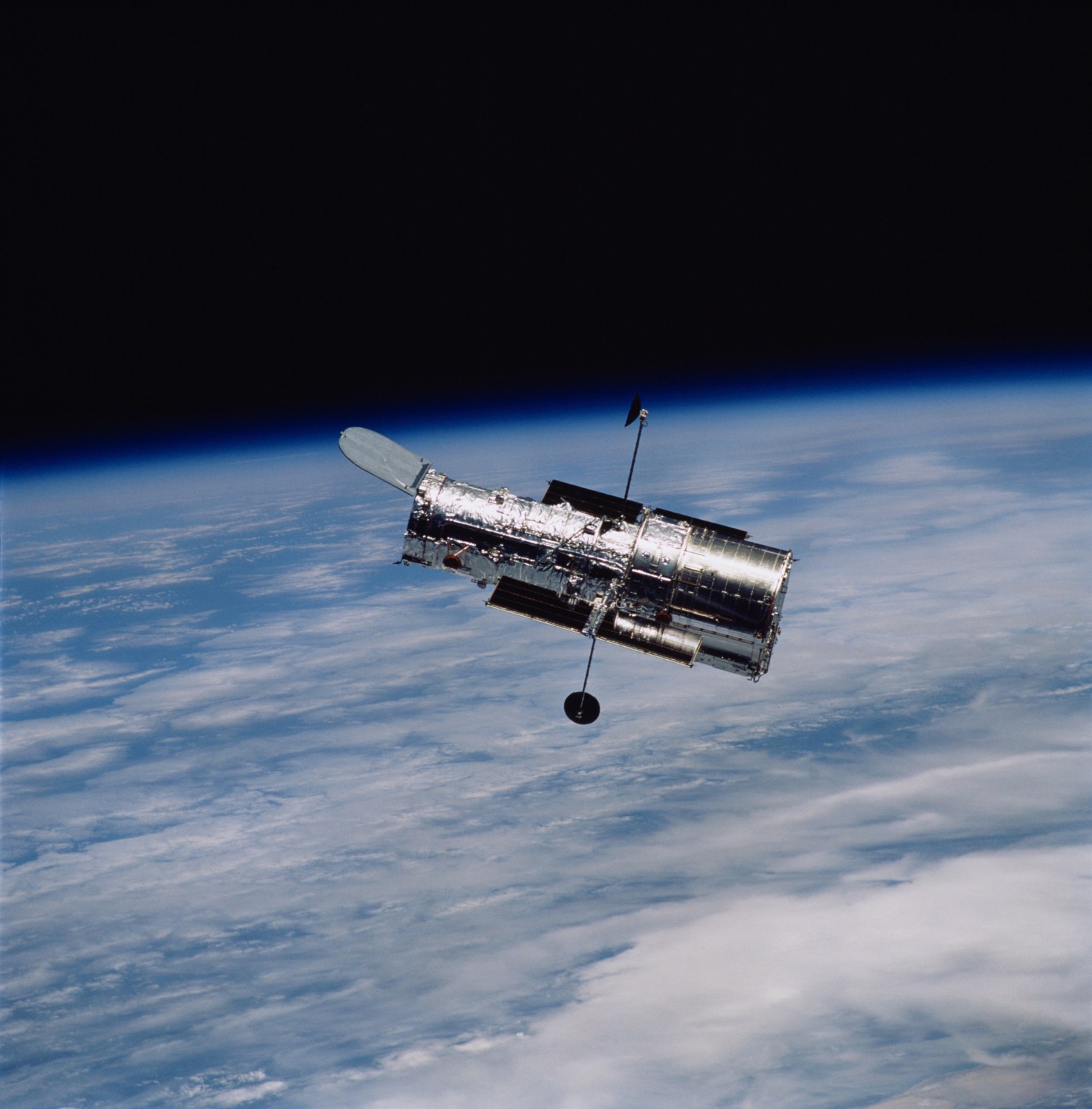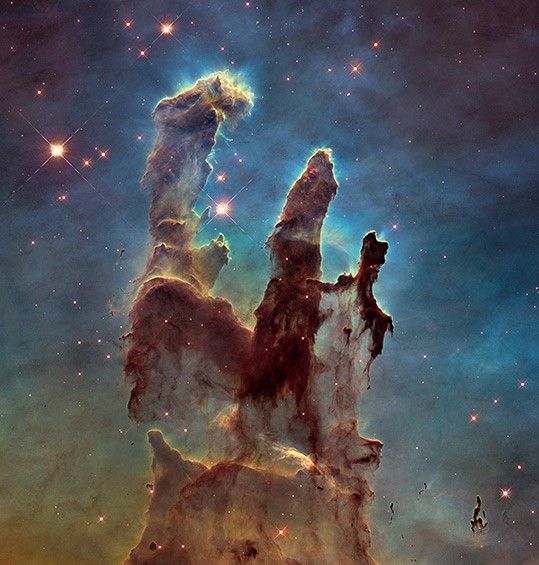1 min read
Interacting Galaxies Arp 273
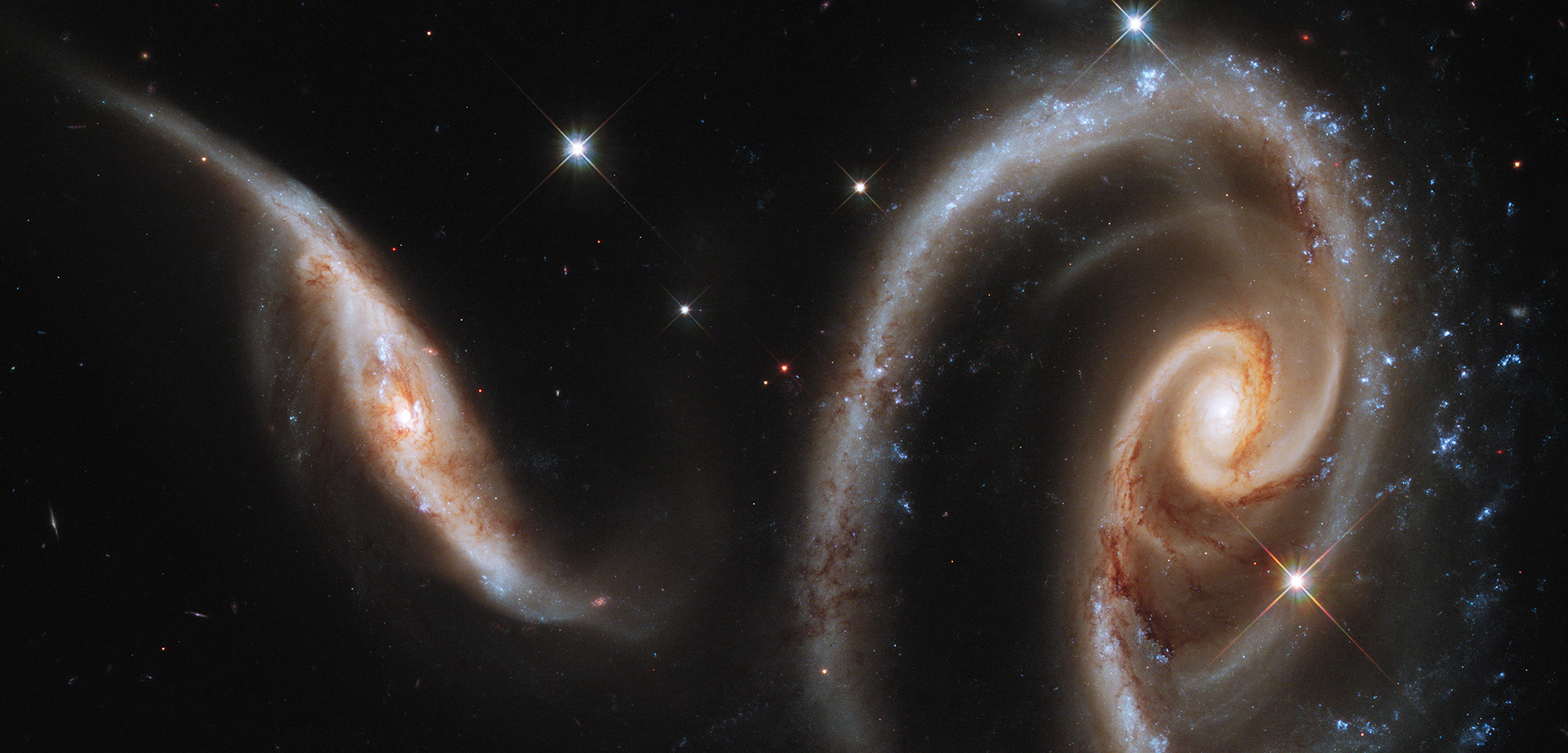
Two misshapen spiral galaxies combine to form a beautiful celestial flower in this Hubble image taken with the Wide Field Camera 3. Known as Arp 273, the pair is among hundreds of "peculiar" galaxies catalogued by astronomer Halton Arp in the 1960s. The gravitational attraction between these two galaxies has created their physical distortions.
The outermost arm of the larger spiral appears to have been pulled into a wide ring around the galaxy — a characteristic astronomers often see in galaxy pairs where one galaxy has passed through the other. The ring around this galaxy is off-center, though. This suggests the smaller galaxy plunged through the larger one, but that its kamikaze dive was not a direct hit.
The encounter seems to have also tipped the large galaxy's inner arms relative to the rest of the galaxy, while the smaller galaxy has become somewhat stretched out, with two sprawling tails on either end.
The interactions between the galaxies appear to have set off a stellar baby boom. In the larger galaxy, a flurry of new star birth recently erupted along the outer spiral arms, where bright, blue clusters of young stars now sparkle. The smaller galaxy's star formation, on the other hand, seems concentrated in its bright core.
Like the galaxies of Arp 273, most galaxies do not live in isolation. Their encounters with each other are an influential part of the growing-up process for galaxies. By observing how galaxies are affected by their gravitational exchanges, astronomers can better understand how galaxies developed and how the universe evolved.
Constellation: Andromeda
Distance: 350 million light-years (105 million parsecs)
Instrument: Wide Field Camera 3/UVIS
Image Filters: F390W (U), F475X (g), F600LP (Red Longpass)
- Object NameObject NameA name or catalog number that astronomers use to identify an astronomical object.Arp 273, UGC 1810
- Release DateApril 20, 2011
- Credit
Share
Details
Claire Andreoli
NASA’s Goddard Space Flight Center
Greenbelt, Maryland
claire.andreoli@nasa.gov

